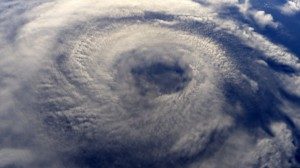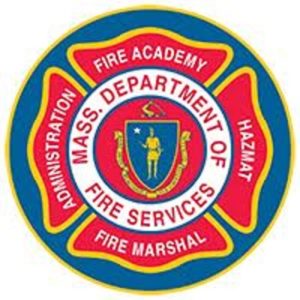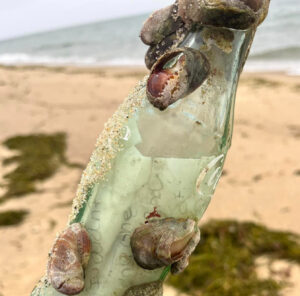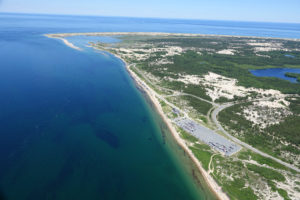 HYANNIS – State officials are stressing the importance of being prepared for major storms as Governor Charlie Baker has proclaimed it Hurricane Preparedness Week.
HYANNIS – State officials are stressing the importance of being prepared for major storms as Governor Charlie Baker has proclaimed it Hurricane Preparedness Week.
The week promotes the importance of preparing for the effects that potential hurricanes and tropical storms have on residents, homes, businesses and infrastructure.
It is held every July to draw attention to the hazards the New England region does face. Historically, severe storms that have impacted the Northeast generally occur from late August through September, so the state uses the early part of the summer to get people thinking about hurricane preparedness.
“I really want the public and residents at home to be thinking about the fact that we do have hurricanes and maybe some of the steps they can take to be prepared,” said Christopher Besse, the Public Information Officer for the Massachusetts Emergency Management Agency.
The last true hurricane to hit the state was Hurricane Bob in 1991. There have been tropical storms and post tropical systems that have impacted the region since Bob.
“It’s really been a while and because of that it makes people a little complacent sometimes,” Besse said.
“We want people to be thinking about the fact that they do happen, particularly people who live in coastal areas that maybe in one of those evacuation zones.”
Massachusetts has established hurricane evacuation zones in each of the state’s coastal communities. These zones, designated as Zone A, Zone B and Zone C, identify the areas of coastal communities that are at risk for storm surge flooding from tropical storms or hurricanes.
If evacuations are necessary because of an approaching tropical storm or hurricane, local or state officials will use the hurricane evacuation zones to call for people living, working or vacationing in these areas to evacuate.
To Find out if you live, work or vacation in a hurricane evacuation zone, visit the ‘Know Your Zone’ interactive map located on MEMA’s website at www.mass.gov/knowyourzone.
Families should also develop a communication plan in case family members get separated from one another during a hurricane or other emergencies.
Communication plans can include having key phone number written down or establishing designated meeting areas in case they can’t get to their home or street.
Residents should also learn how they will stay informed during a storm and know where they can get information whether from television, radio, or social media and having alternatives in case one or more of those systems is unavailable.
MEMA also provides a lot of information on its Twitter account, @MassEMA, and Facebook page.
Emergency kits can also be useful during hurricanes and other emergency situations as well.
These kit items include food, bottled water, a flashlight and radio with batteries pet supplies, a charged cell phone and medications.
MEMA also recommends residents have a “go kit” ready as well in case evacuations are required. These “go kits” or small bags should also include medications, extra eyeglasses and children’s items, like diapers and formula, food and supplies for pets, clothes and other items you or your family may need during an emergency.
“We really suggest that people have at least three days’ worth of stuff in their home to be self-sufficient,” Besse said.
“Emergency preparedness is really more of a mindset,” Besse said.
Many of the recommended preparedness actions can be used for emergency situations any time during the year, including nor’easters in the winter, a summer hurricane, tornado, spring thunderstorms or other events that cause power outages.
“A lot of the things we encourage people to do will really help them no matter what the situation,” he said.
The official Atlantic Hurricane season is underway and runs through the end of November.
The National Oceanic and Atmospheric Administration is predicting a near-normal 2019 Atlantic hurricane season.
NOAA’s Climate Prediction Center forecasts a 40 percent chance of near-normal storm activity.
The prediction includes nine to 15 named storms, with four to eight becoming hurricanes – half of which could be classified as major.
For detailed information about hurricanes and tropical storms and the hazards they present, along with safety tips visit mass.gov/mema.
























